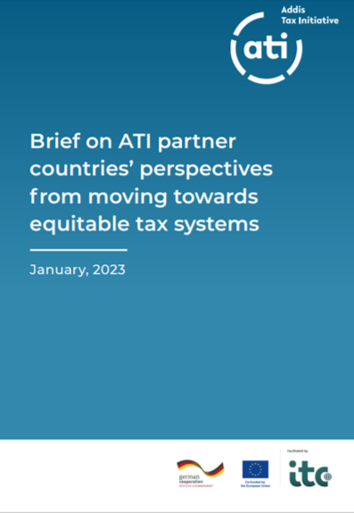
Brief on ATI partner countries’ perspectives from moving towards equitable tax systems
Equitable tax policies require those with higher income or wealth levels to be taxed at a higher rate and tax revenues to promote equity through public spending that benefits poorer or more marginalised groups. The brief on ATI partner countries’ perspectives from moving towards equitable tax systems presents the experience of three selected countries ─ the Phillipines, Sierra Leone, and Uganda ─ in designing and implementing tax reforms and processes that aimed to produce equitable outcomes.
The Philippines case study explores the introduction of sin taxes ─ on alcoholic drinks, tobacco, and sugar-sweetened beverages ─ with most of the revenues earmarked for expanding access to health services. This reforms illustrates that tax reforms can be used to pursue multiple public policy objectives, including the raising of revenues, changing consumption habits and increasing spending in targeted sectors.
The property tax reform undertaken by the Freetown City Council (FCC) in Sierra Leone translated into a significant increase in tax revenues during the year of the COVID-19 pandemic, with revenues coming mainly from the most valuable properties. This case study highlighths a strong political leadership and clear strategy to confront resistance from tax payers, and securing the buy-in and support from central government and local administrators as key elements for the successful introduction and implementation of the reforms.
The Uganda case study shows the positive impact of establishing a High-Net-Worth Individuals (HNWI) Unit on tax filing and ─ to a lower extent ─ tax compliance among wealthy and influential individuals. The response shows evidence on the relevance of system-wide response from government for improved collaboration and information sharing across relevant authorities, as well as of sustained capacity development for the staff of such units.
The case studies presented in the brief showcase the importance of equitable tax policies and efficient revenue administration in promoting sustainable development. This study supports the work of the ATI in fulfiling ATI Commitment 1 of the ATI Declaration 2025, which supports partner countries in fostering equitable domestic revenue mobilisation (DRM).